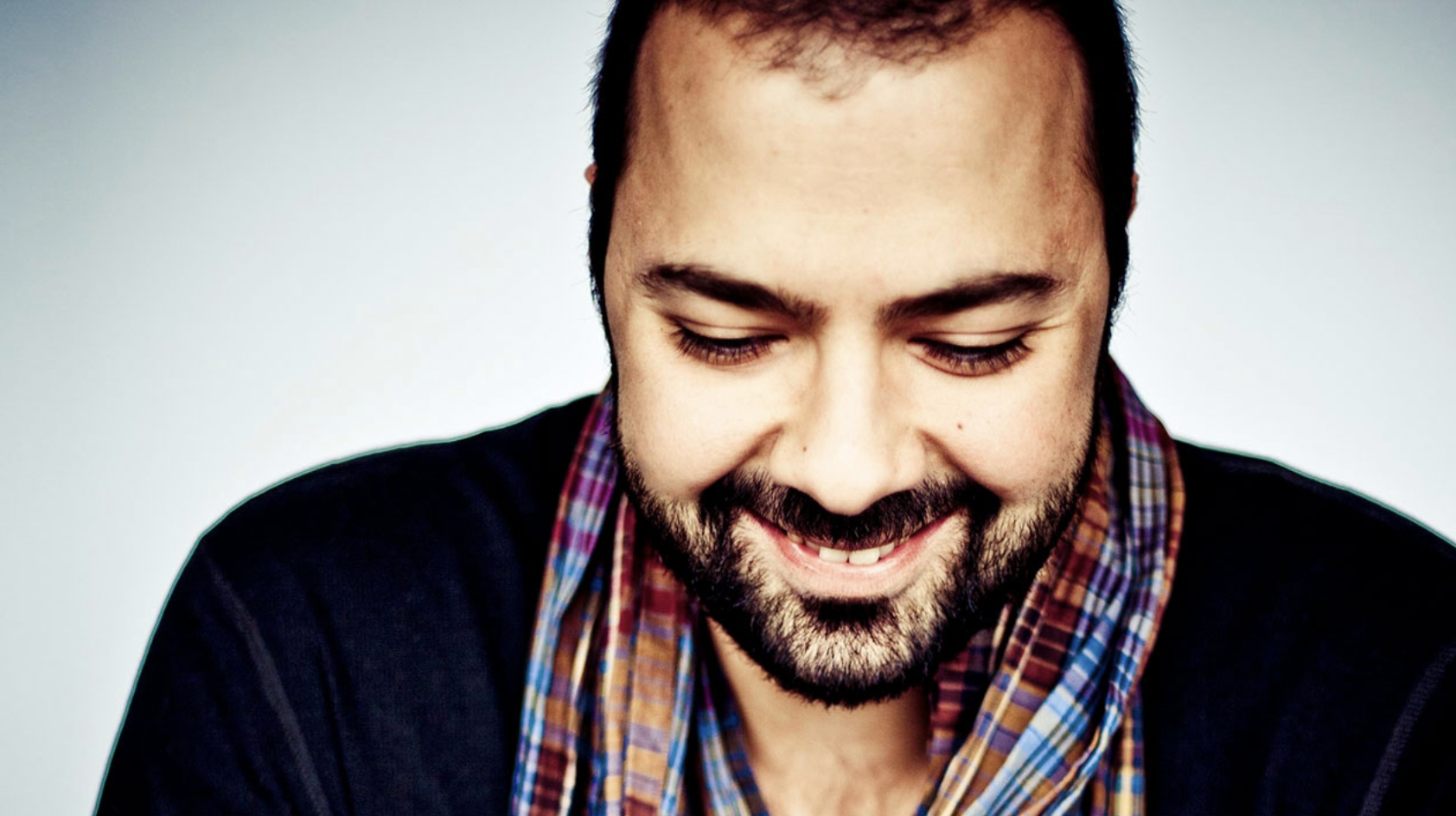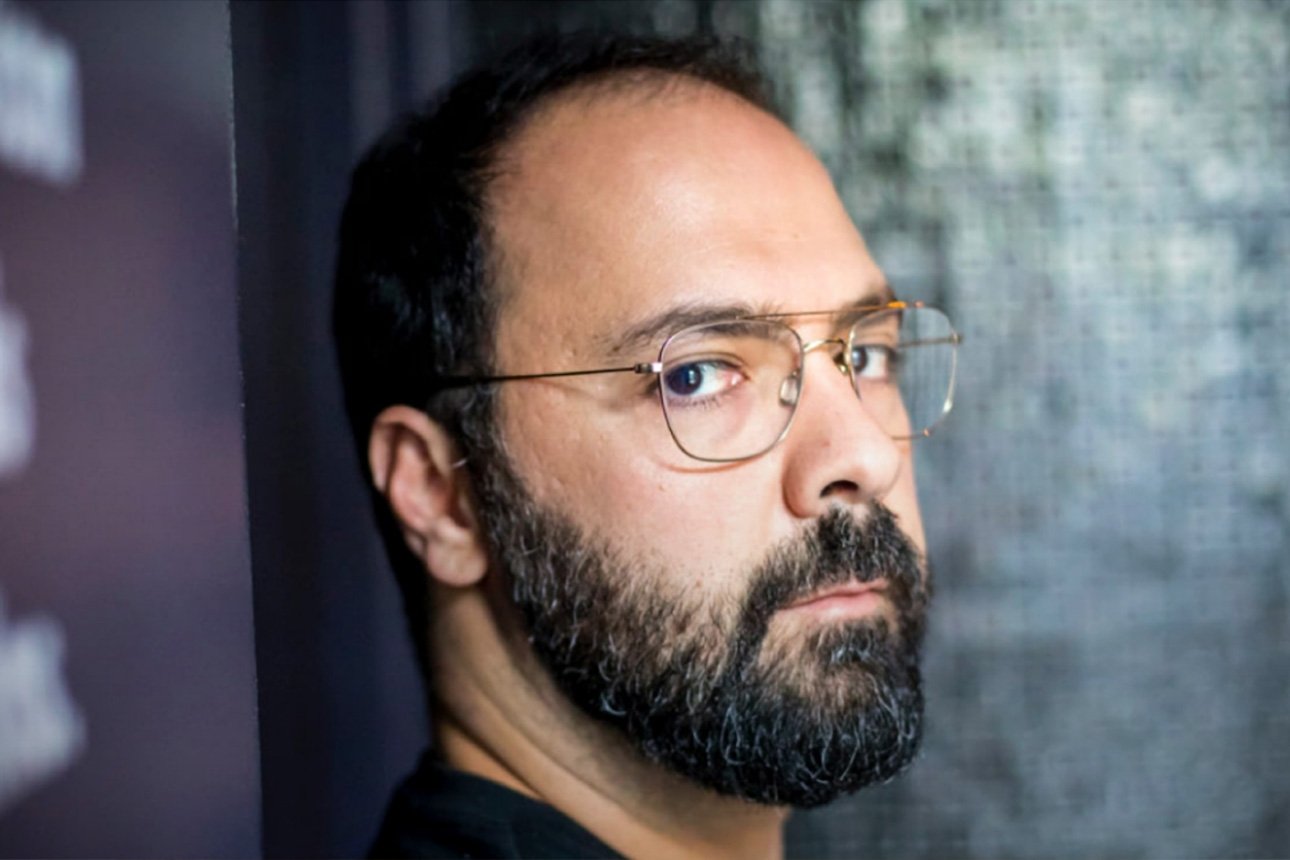For Mani Soleymanlou, the search for identity is back to ZÉRO
The Montreal-based Iranian-Canadian theatre artist explores origins in autobiographical solo
Mani Soleymanlou. Photo Maude Chauvin
Théâtre la Seizième presents ZÉRO by Mani Soleymanlou in French with English subtitles from February 9 to 12 at the Scotiabank Dance Centre.
“WHERE ARE YOU FROM?” is a not an easy question for Mani Soleymanlou to answer. Born in Tehran, he and his family fled Iran for Paris when he was four years old. He moved to Toronto at age nine, later studied in Ottawa, then moved to Montreal, where he now lives and runs his theatre company, Orange Noyée. In the 2010s, Soleymanlou wrote a series of shows from Un to Neuf (One to Nine) based on his identity. He figured he was done with the topic after a decade exploring it. Then he and his wife had a baby.
“When my son arrived, most of the people around me came back with the same questions, asking me if I was going to speak Farsi to my kid,” Soleymanlou tells Stir by phone. “Is he going to learn Persian culture? All of a sudden this whole idea of transmitting—transmettre—Persian heritage I started questioning. What is it that I can transmettere to my kid? Can I tell him why we’re not living in Iran anymore? Can you tell a four-year-old kid, who’s all of a sudden curious, about oppression and revolution and war and dictatorship and theocracy? How do you explain where you’re from or how do I explain to him why he can’t understand his grandfather and how do I explain to him why I can’t go back to this country or why he doesn’t speak its language? All these questions I thought I had covered came back with a vengeance.”
ZÉRO is Soleymanlou’s response—though it doesn’t necessarily answer any questions. He wrote, directs, and performs the autobiographical solo, which Théâtre la Seizième is bringing to Vancouver. Another word for zero in Persian and Arabic is “sefr”, which means “void”. In the play, he explores the notion of void of identity, returning full circle to his very first creation on the subject. The title also refers to starting from scratch.
Around the same time his son was born, Soleymanlou explains, he got a call from his father about the real reason they left Iran. His dad had never told him about the night in Tehran he was followed home by Revolutionary Guards and questioned for several hours. War with Iraq had broken out, and society was extremely tense; that incident was the last straw.
“My father told me out of the blue at the age of 80 the one event that made it clear we had to leave Iran in the ’80s,” Soleymanlou says. “That plus my son asking me a lot of questions about this country forced me to understand how we talk about this issue of who we are, where we’re from, and what is the social construct of identity and how we name things.
“I go with the idea that I’m the sum of all these different places,” he says. “I’m part French, I’m part Canadian, I’m part Quebecois, I’m part Persian. I’m from Montreal, I’m from Toronto, there’s Ottawa in me… It’s the mass and sum of all these different places that make us who we are. But Montreal is where I get my mail.”
Soleymanlou says he has noticed a certain irony: as more people today are speaking about identity, our relationship with the “other” has become more oppositional. The media and politicians in particular, he says, instrumentalize this polarization, pitting people against each other, pointing fingers, creating division.
Mani Soleymanlou.
Soleymanlou graduated from the National Theatre School of Canada in 2008 and in September 2021 was appointed artistic director of NAC French Theatre. He first discovered theatre in high school, where the program’s director noticed he liked to joke around and suggested he try it on-stage. Something clicked.
“All of a sudden you realize it’s this whole other way of communicating,” Soleymanlou says. “When you’re a teenager, whatever chance you get to communicate and to exteriorize everything that’s inside your heart and inside your head, all the doubts you have…. Theatre helped break down doors and helped me to express myself, to realize there’s something amazing happening between the audience and what’s happening on stage. The more I did it, the more I realized the power of it.
“It’s a moment where we can sit in the dark and silence and think about the world we’re living in, and for me that’s a powerful tool,” he says. “It’s a powerful state of being. It’s a powerful moment where we can share and listen and look and evolve together.”
Soleymanlou’s knack for making people laugh has remained a constant in his work. He emphasizes that although the theme of ZÉRO is serious, he approaches it with a sense of lightness.
“I try to talk about these subjects with a lot of distance and humour,” he says. “For me, comedy and distance from the subject allow so much more understanding. I’m not going into a deep emotional identity crisis. Comedy for me is a powerful tool. I realized that when I started writing my first show. I realized if I can not take myself too seriously in these subjects and topics, the person listening feels more comfortable, and then the pathway opens up. It relaxes people in a room and then you can say whatever you need to say.”
For more information, see https://seizieme.ca/en/.















